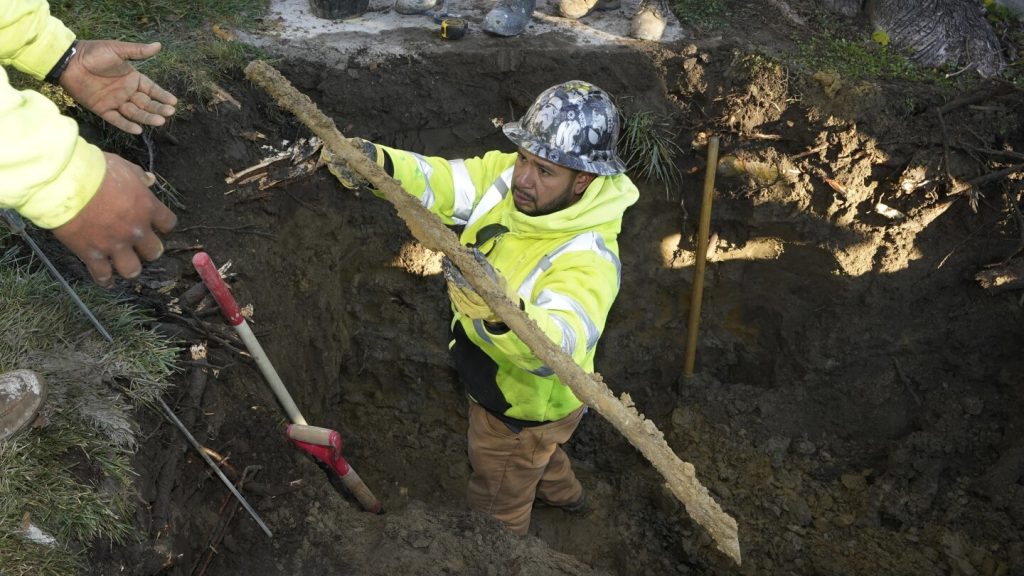The Environmental Protection Agency is at risk of misallocating nearly $1 billion in lead pipe replacement funding to the wrong states due to inaccurate data provided by Texas and Florida. The agency did not verify the information provided by these states, leading to potential errors in the distribution of funds. This could result in states with the greatest needs for lead pipe replacement having to wait longer or receiving less funding than they should.
The bipartisan infrastructure law allocated $15 billion for finding and replacing lead pipes, with the intention of providing more funds to states with a higher number of lead pipes. However, the EPA did not verify the data provided by states, leading to discrepancies in the allocation of funds. For example, a data entry error by Houston resulted in an overallocation of funds to Texas. The EPA disputed the watchdog’s findings and stated that it tried to balance evolving information with the need to quickly allocate funds.
The release of these findings comes shortly after the Biden administration finalized a rule mandating the removal of lead pipes within a decade. Lead exposure can have harmful effects on brain development in children and increase blood pressure in adults, necessitating the replacement of the country’s roughly 9 million lead pipes. Federal funds play a crucial role in ensuring that the cost does not burden homeowners. The EPA Inspector General has called for the agency to develop methods to verify state data and address the issues related to Texas and Florida.
The EPA survey was designed to provide accurate information on the number of lead pipes in each state, as many water providers do not have this information readily available. Accurate inventories are costly and time-consuming, so the agency relied on states to provide estimates to distribute federal funds more effectively. The inspector general found that Florida inflated its lead pipe count and failed to update its submission despite the opportunity to do so. This could have significant financial implications for other states in need of lead pipe replacement funding.
There are concerns about the misallocation of funds to states with fewer lead pipes, like Florida, when other states with documented lead pipe issues are in urgent need of funding. Even after the EPA allocates funds, there is still an opportunity to correct errors. Texas, which received a minimum allocation the following year, may have received more funding than it should have initially. The EPA continues to work on addressing the issues raised by the inspector general’s report and ensuring that funds are distributed to states based on accurate data.
Overall, the findings highlight the challenges in accurately allocating funds for lead pipe replacement and the importance of verifying state data to avoid misallocation. The EPA’s efforts to address the issues with Texas and Florida and develop better methods for data verification will be crucial in ensuring that funding reaches states with the greatest need for lead pipe replacement. As the country works towards removing lead pipes to protect public health, it is essential to allocate funds effectively and prioritize states with urgent lead pipe replacement needs.


